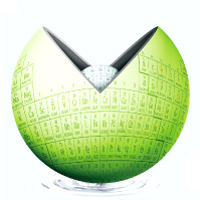
Published for geochemistry community from Geochemical Society of Japan.
Groundwaters of Mt. Vulture volcano, southern Italy: Chemistry and sulfur isotope composition of dissolved sulfate
Geochemical Journal, Vol. 44, No. 2, P. 125-135, 2010
ABSTRACT
We report the chemical composition of groundwaters—including the first data on the sulfur isotopic composition of dissolved sulfate—from the volcanic aquifers of Mt. Vulture, one of the most important hydrological basins of southern Italy. A total of 27 water samples taken at different altitudes among drilled wells and springs were collected. The majority of groundwaters have a bicarbonate alkaline and bicarbonate alkaline-earth composition. High-salinity waters are sulfate-bicarbonate alkaline in composition. The water-rock interaction process is mainly affected from uprising of CO2-rich gases which cause an increase of the water acidity promoting basalt weathering with an enrichment in certain chemical species (i.e., Na+, Ca2+, SO42-) and a high total carbon content. The δ34S values of dissolved sulfate ranging from +4‰ to +8.6‰ can be explained by leaching of volcanites. Higher δ34S values (from 9.6‰ to 10.4‰) detected in a few water springs can be ascribed either to the interaction with the pyroclastic layer rich in feldspathoids, such as haüyna, that have sulfur isotopic compositions up to +10.6‰ or animal manure contamination inducing localized bacterial sulfate reduction with an increase in the δ34S of sulfate. Taking into account that Upper Triassic evaporite deposits have higher δ34S values (from +13.5‰ to +17.4‰,) than those measured in all water samples the dissolution of these deposits could be excluded.KEYWORDS
Mt. Vulture volcano, water-rock interaction, silicate weathering, hydrogeochemistry, sulfur isotope composition- Published : 2010-04-20
- Released on J-STAGE : 2013/03/23
- Received : 2009/04/09
- Accepted : 2009/07/13
- DOI : https://doi.org/10.2343/geochemj.1.0050
- J-STAGE URL : https://www.jstage.jst.go.jp/article/geochemj/44/2/44_1.0050/_article/-char/ja
- J-Online ISSN: 1880-5973
- Print ISSN : 0016-7002
- ISSN-L : 0016-7002
All Issues
- Vol.59, 2025
- Vol.58, 2024
- Vol.57, 2023
- Vol.56, 2022
- Vol.55, 2021
- Vol.54, 2020
- Vol.53, 2019
- Vol.52, 2018
- Vol.51, 2017
- Vol.50, 2016
- Vol.49, 2015
- Vol.48, 2014
- Vol.47, 2013
- Vol.46, 2012
- Vol.45, 2011
- Vol.44, 2010
- Vol.43, 2009
- Vol.42, 2008
- Vol.41, 2007
- Vol.40, 2006
- Vol.39, 2005
- Vol.38, 2004
- Vol.37, 2003
- Vol.36, 2002
- Vol.35, 2001
- Vol.34, 2000
- Vol.33, 1999
- Vol.32, 1998
- Vol.31, 1997
- Vol.30, 1996
- Vol.29, 1995
- Vol.28, 1994
- Vol.27, 1993
- Vol.26, 1992
- Vol.25, 1991
- Vol.24, 1990
- Vol.23, 1989
- Vol.22, 1988
- Vol.21, 1987
- Vol.20, 1986
- Vol.19, 1985-1986
- Vol.18, 1984
- Vol.17, 1983
- Vol.16, 1982
- Vol.15, 1981
- Vol.14, 1980
- Vol.13, 1979
- Vol.12, 1978
- Vol.11, 1977
- Vol.10, 1976
- Vol.9, 1975
- Vol.8, 1974
- Vol.7, 1973
- Vol.6, 1972-1973
- Vol.5, 1971
- Vol.4, 1970-1971
- Vol.3, 1969-1970
- Vol.2, 1968
- Vol.1, 1966-1967
Current Issue:
Stats:
Impact Factor: 1.6 (2024)
Submission to final decision: 9.6 weeks (2022)




